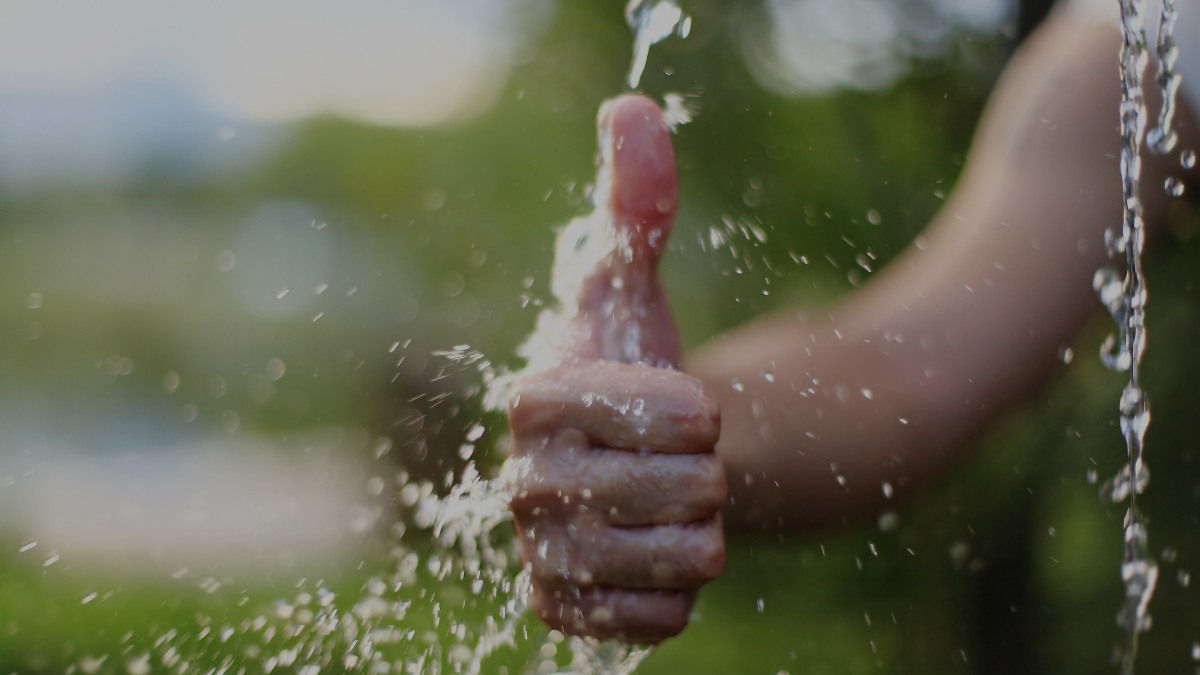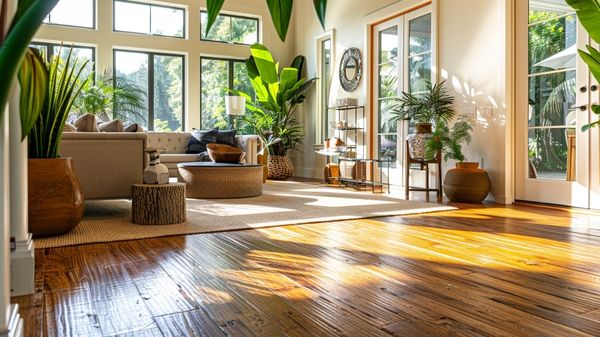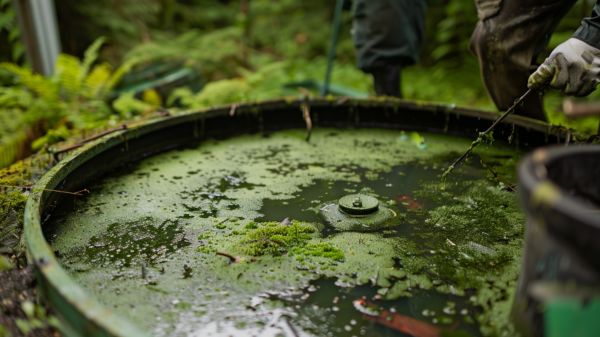Are you ready to join us and revolutionize your home with the power of water conservation? In today’s world, where water is becoming increasingly precious, it’s crucial that we all do our part to preserve this vital resource.
As a society, we face challenges to our water supplies, but every little bit of conservation helps. In this article, we’ll explore practical ways to revolutionize your home and unleash the power of water conservation.
Let’s dive in and make a difference together.
Key Takeaways
- Fixing leaks and addressing household issues can significantly reduce water waste.
- Everyday actions such as turning off the faucet while brushing teeth and waiting for full loads before running appliances can conserve water.
- Efficient outdoor watering techniques, such as using drip irrigation and grouping plants with similar water needs, can save thousands of gallons of water.
- Installing water-saving appliances and fixtures, as well as implementing rainwater harvesting and xeriscaping techniques, can revolutionize water conservation efforts at home.
Importance of Water Conservation
Water conservation is crucial for preserving our planet’s most valuable resource. As we face water scarcity solutions, it becomes increasingly important to recognize the benefits of water conservation. By conserving water, we not only save money on our water bills but also protect our environment. Climate change, pollution, and overpopulation threaten our water supplies, making every drop count.
Simple home repairs such as fixing leaky faucets and toilets can prevent gallons of water loss. Everyday habits like turning off the faucet while brushing our teeth or shaving can make a big difference. Efficient outdoor watering techniques and the use of water-saving appliances and fixtures further contribute to conservation efforts.
Implementing rainwater harvesting, xeriscaping with drought-tolerant plants, and educating and engaging others are additional ways we can make a difference. Together, we can ensure a sustainable future for water and our planet.
Home Repairs for Water Conservation
To make a significant impact on water conservation, we can start by addressing household leaks and issues that contribute to water waste.
One way to do this is by fixing water leaks promptly. Leaky faucets and toilets can waste gallons of water every day, adding up to significant amounts over time. By repairing these leaks, we can prevent unnecessary water loss and conserve this precious resource.
Another important step is to consider water saving plumbing fixtures. Installing low-flow showerheads and faucets, as well as choosing water-efficient washing machines and dishwashers, can significantly reduce water usage in the home.
Everyday Ways to Conserve Water
Let’s explore some simple yet effective ways to conserve water in our everyday lives. Incorporating water-saving habits into our daily routines not only helps to protect this precious resource but also saves money on water bills. Here are some practical water conservation tips:
- Turn off the faucet while brushing teeth or shaving. Every drop counts!
- Place a plastic bottle filled with water or sand in the toilet tank to reduce water consumption per flush.
- Wait until the dishwasher and washing machine are fully loaded before running them. This maximizes water efficiency.
- Covering an outdoor swimming pool when not in use can save up to 50% of water from evaporation. It’s a small effort with significant impact.
Efficient Outdoor Watering
As we continue our exploration of water conservation in our everyday lives, let’s now delve into the topic of efficient outdoor watering.
One of the most effective ways to conserve water outdoors is by installing smart sprinkler systems. These systems use advanced technology to optimize watering schedules based on weather conditions and plant needs, saving thousands of gallons of water per year.
Another method is to utilize drip irrigation or soaker hoses. These systems deliver water directly to the roots of plants, minimizing evaporation and runoff.
By grouping plants with similar water needs together and mulching garden beds, we can further retain moisture and reduce water waste.
Efficient outdoor watering not only helps conserve water but also promotes healthier and more sustainable landscapes.
Water-Saving Appliances and Fixtures
We can revolutionize our homes by installing water-saving appliances and fixtures. By making these simple changes, we not only contribute to water conservation efforts but also reap numerous benefits for ourselves and the environment. Here are some key points to consider:
- Water-saving faucet options: Upgrading to low-flow faucets can reduce water usage by up to 30%. These innovative fixtures maintain water pressure while minimizing wastage, allowing us to enjoy our daily activities without compromising on comfort or convenience.
- Benefits of low flow toilets: Installing dual-flush toilets or partial flush valves can significantly decrease water consumption per flush. By using less water, we not only conserve this valuable resource but also save money on our water bills.
- Energy-efficient appliances: Choosing washing machines and dishwashers with high energy efficiency ratings not only saves water but also reduces energy consumption. This double benefit contributes to a more sustainable lifestyle and lowers our utility costs.
- Aerator usage: Adding aerators to our faucets limits water flow without sacrificing performance. These simple attachments mix air with water, reducing consumption while maintaining an optimal water experience.
By incorporating these water-saving appliances and fixtures into our homes, we can make a positive impact on the environment while enjoying the benefits of reduced water usage and lower utility bills.
Let’s join the movement towards a more sustainable future.
Rainwater Harvesting
To fully optimize water conservation efforts in our homes, incorporating rainwater harvesting is a practical and sustainable solution.
Rainwater collection systems, such as rain barrels or cisterns, allow us to collect and store rainwater for outdoor use, reducing our reliance on municipal water sources.
By directing downspouts towards landscaped areas or implementing rain gardens, we can capture rainwater and utilize it for watering plants and gardens.
The benefits of rainwater harvesting are numerous. It helps conserve water, reduces water bills, and promotes self-sufficiency. Additionally, rainwater is free of chemicals and additives, making it ideal for irrigating plants.
Xeriscaping and Native Plants
Xeriscaping and native plants offer an efficient and sustainable solution for conserving water in our home landscapes. By incorporating these practices, we can’t only reduce our water consumption but also create beautiful and thriving gardens.
Here are some benefits of xeriscaping:
- Decreases water usage significantly
- Lowers maintenance needs
- Enhances biodiversity and supports local ecosystems
- Reduces the need for chemical fertilizers and pesticides
And here are the best native plants for water conservation:
- Succulents like agave and yucca
- Wildflowers such as black-eyed susans and coneflowers
- Grasses like buffalo grass and blue grama
- Shrubs like manzanita and sagebrush
Educating and Engaging Others
As we continue exploring ways to revolutionize our home through water conservation, it’s essential to educate and engage others in this crucial endeavor. Promoting awareness and community involvement are key to creating a lasting impact.
By sharing our knowledge and water-saving tips with friends and family, we can inspire them to join us in conserving water. Participating in community initiatives and events that promote water conservation allows us to connect with like-minded individuals and work towards a common goal.
Supporting organizations that focus on sustainable water management reinforces our commitment to making a difference. Additionally, we can encourage schools and businesses to implement water-saving practices, creating a ripple effect throughout the community.
Together, we can build a strong network of individuals dedicated to preserving this valuable resource for future generations.
Conclusion
In wrapping up our exploration of water conservation and its impact on revolutionizing our homes, let’s reflect on the power and potential we hold to make a difference in preserving this invaluable resource for generations to come. By practicing water conservation, we not only reduce our water bills but also have a significant impact on the environment.
Here are some key takeaways:
- Conserving water helps us save money on water bills while also protecting the environment.
- Every small action we take towards water conservation contributes to the larger goal of preserving our water resources.
- Implementing water-saving techniques in our homes can have a positive ripple effect on our community and the planet.
- By embracing water conservation, we become part of a larger movement to create a sustainable future for ourselves and future generations.
Let’s join hands in embracing water conservation and unleash the power to revolutionize our homes and protect our precious water resources.
Frequently Asked Questions
How Can a Smart Sprinkler System Help Save Water in the Garden?
Smart sprinkler systems utilize water-saving technology to optimize garden irrigation, reducing water waste and promoting water conservation in landscaping. With features like weather sensors and programmable schedules, they deliver just the right amount of water, saving both time and resources.
What Are the Benefits of Using Rain Barrels for Collecting Rainwater?
Using rain barrels for rainwater harvesting has numerous benefits. It conserves water, reduces reliance on municipal sources, and saves money on water bills. Plus, collected rainwater can be used for outdoor watering, benefiting both the environment and our wallets.
How Can Xeriscaping Help Conserve Water in Landscaping?
Xeriscaping can help conserve water in landscaping by using smart irrigation systems and choosing water-efficient plants. Grouping plants with similar water needs and mulching garden beds also helps retain moisture.
What Are Some Effective Ways to Educate and Engage Others in Water Conservation?
Water saving campaigns and educational workshops are effective ways to educate and engage others in water conservation. By spreading awareness, sharing tips, and supporting organizations, we can create a sense of belonging and inspire collective action for a sustainable future.
Are There Any Government Incentives or Programs Available for Promoting Water-Saving Practices in Homes?
There are government incentives and programs available to promote water-saving practices in homes. These initiatives can help us save money, conserve water, and contribute to sustainable water management. Let’s take advantage of these opportunities to revolutionize our homes.




